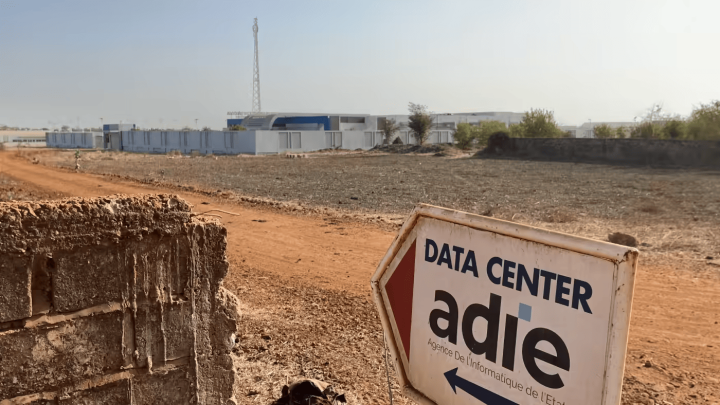Nikkei cited data recorded by fDi Market - the research department of the Financial Times , saying that in 2022, China's investment in information technology, communications and electronic components reached a total of 17.6 billion USD, six times higher than in 2013 - the time when China launched the "Belt and Road" initiative (BRI).
Among the IT projects that China is investing in under the BRI initiative is the new Senegalese government data center, which is due to be completed in 2021. It is a joint venture between the Senegalese and Chinese governments , with servers provided by Huawei Technologies.

The Senegal government's data center in Diamniadio is a joint project with China, with servers provided by Huawei Technologies. (Photo: Nikkei)
Cheikh Bakhoum, director general of Senegal Numerique, the Senegalese state agency that manages the database, said the center brought the data back to Senegal. Previously, Senegalese government data was stored on foreign servers run by Western companies. This helped reduce costs, as well as ensure digital sovereignty .
Senegal has also installed an undersea fiber optic cable and urban surveillance cameras with Chinese money. According to Cheikh Bakhoum, data from the cameras is analyzed using specialized software.
“China started exporting its domestically developed digital infrastructure in the late 2000s,” said Dai Mochinaga, associate professor at Japan’s Shibaura Institute of Technology.
“This trend accelerated around 2013, when Huawei expanded its overseas investments,” Dai Mochinaga added.
Besides information technology, China also invests heavily in biotechnology. In the period 2013 - 2022, growth in this field increased 29 times, reaching 1.8 billion USD.
The development of a COVID-19 vaccine is a prime example, with China exporting about 2 billion doses of vaccines worldwide by the end of 2022, reaching countries in the European region.
Chinese biotech firm Suzhou Abogen Biosciences has licensed its technology for developing a vaccine using messenger RNA (also known as mRNA) to Indonesian startup Etana Biotechnologies, which completed its vaccine manufacturing facility last year, with the goal of producing 100 million doses.
China's shift in investment to areas such as information technology and biotechnology also means a decline in spending on major infrastructure projects under the BRI initiative.
Investment in fossil fuel development has fallen to 1% compared to the previous decade amid efforts to cut greenhouse gas emissions. In 2021, Chinese President Xi Jinping pledged to build no new coal plants abroad.
Spending on metal-related projects, such as aluminum production, has also declined since peaking in 2018.
Part of the reason is that investing in areas such as information technology and biotechnology is less expensive. The average investment cost for each fossil fuel project is $760 million, and mining is $160 million. Meanwhile, the average investment cost for each biotechnology project is only $60 million, and information technology services is $20 million.
This means less risk for the host country of Chinese investment. China has been accused of pushing emerging economies into a “debt trap,” forcing recipients of projects to shoulder large amounts of debt and taking control of infrastructure such as ports when the country cannot repay its loans.
Kong Anh (Source: Nikkei Asia)
Useful
Emotion
Creative
Unique
Wrath
Source


































































































Comment (0)